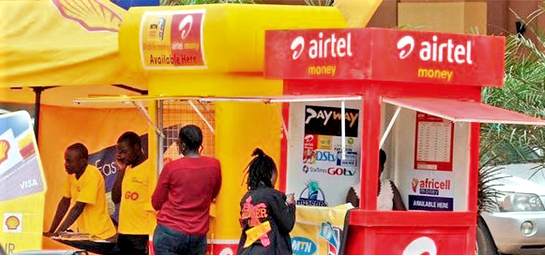
Less money was sent through Mobile Money (MoMo) platforms last December than was transferred through the platform in November last year.
A Bank of Ghana (BoG) report on electronic transactions showed that the value of MOMO transactions fell to GH¢82.9 billion in December from the GH¢86.1 billion recorded in the period under review.
The value of the decline was GH¢3.2 billion, representing a 3.7 per cent.
The central bank’s summary of financial and economic data indicated that the decline was the first since September but the third in the year.
The drop in the value from November to December 2021 was also the first of its kind since 2019 when the central bank started publishing data on MOMO transactions.
In 2019, the value of transactions rose from GH¢29 billion in November to GH¢32.8 billion. In 2020, it rose from GH¢57.3 billion in November to GH¢67.7 billion, according to BoG’s data.
The Chief Executive Officer of MTN Mobile Money Limited, Eli Hini, said in an interview that the data reflected trends in December.
He said unlike previous years when transactions on MOMO witnessed increased activities, last December was unusually slow.
This December was not our usual December. We all know that December is always a busy month, full of activities on MOMO but that was not what we saw,” Hini, whose company controls the biggest market share in that space, told the Daily Graphic..
However, it is not yet ascertained whether the announcement of the government’s intention impacted on the reduction in transactions.
Known as the electronic transactions levy (E-Levy), the tax was due to take off on February, this year but that has been missed and the success of its implementation now hangs in the balance.
It follows the Minority in Parliament’s insistence that the tax was counterproductive and a threat to financial inclusion and the drive towards a cash-lite society.
The National Democratic Congress Minority also contend that the levy was aiming to tax savings and the capital of the public and businesses in clear violation of the principles of taxation, hence the need for it to be withdrawn.
The Ministry of Finance has since stepped up public awareness of the need for the tax, while continuing with consultations to help garner public support and consensus for its passage later this month.

Trend
The BoG report, which was released last Friday, showed that MOMO transactions opened last year at GH¢67.1 in January and peaked at GH¢99.1 billion in July before falling to GH¢71.7 billion in September.
It then resumed an upward trajectory in October into November before falling in December. The balance on the MOMO float was GH¢9.7 billion in December compared to GH¢8.7 billion in November, according to the data.
While declining to speak on company specifics, Hini said the data represented the trends in the industry.
It is a decline across the entire industry. If customers are reacting to something, they will do that across the board and that is what we saw in the data,” he said.
Read also: MTN blames slow SIM registration on mandatory Kelni GVG app
When pressed further on whether or not MTN witnessed a decline in the value of transactions in December, the CEO said a cursory look at their internal data showed that “December was not our usual December.”
He, however, stressed that he was yet to study the statistics on the value and volumes of transactions to properly appraise himself of the growth trends and the possible drivers.
Growth in MOMO
Introduced around 2010, MOMO has become the fastest and most preferred medium to save and move funds with the value and volume of transactions on the card-based platform outstripping all other electronic transactions.
Registered mobile money accounts also rose to 48.3 million subscribers in December although only 17.9 million of them were active, according to the data.
Need for E-Levy
Ofori-Atta told Parliament last November that the strong growth in MOMO showed that “there exists significant potential to increase tax revenues.”
He said that could happen when the government brought “transactions that could be best defined as being undertaken in the ‘shadow economy’ into the tax bracket.
This, he said, informed the decision to introduce the E-Levy on all electronic transactions to widen the tax net and rope in the informal sector.


[…] Read also: MOMO transactions fall to GH¢82bn in December […]